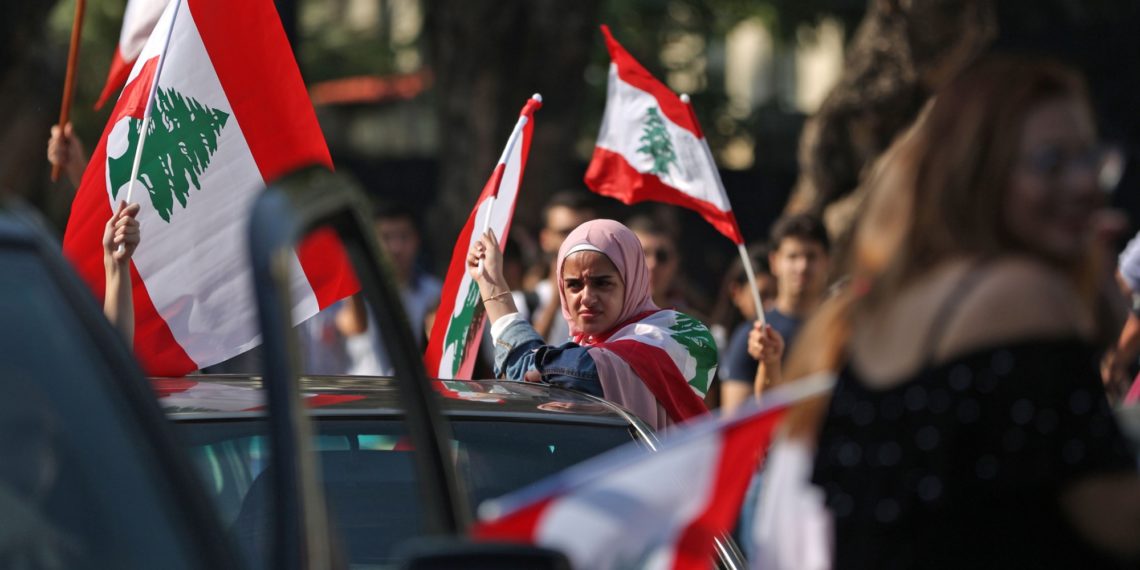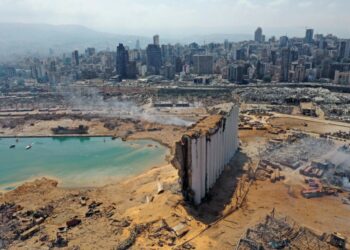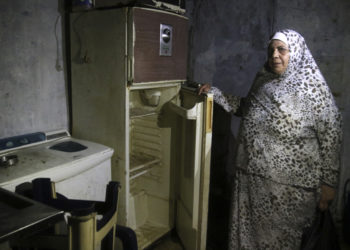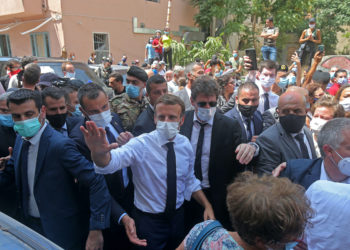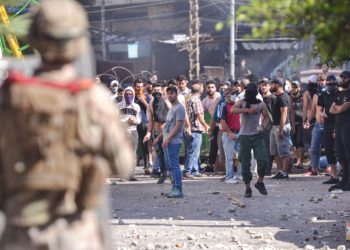Political leaders often act in their own vested interest and at the cost of the citizens they serve. This behavior has been eye-catching in Lebanon, where the former government of Prime Minister Saad Hariri collapsed in October.
That was two weeks after demonstrations broke out trying to overthrow the corrupt sectarian aristocrat that had dominated Lebanese politics since the end of the civil war in 1990.
Three months after the eruption of the October Revolution, the country reached an agreement to form a new government headed by academician-turned-politician Hassan Diab.
However, on Monday, just 41 days after taking office, Diab admitted that the state had lost the nation’s confidence. On top of inheriting a disastrous economic situation, his government faces the impossible challenge of balancing between the powerbrokers who brought it to power and a street that demands all of its ruling elite out.
Challenges of Diab’s Government
The new pro-Hezbollah administration is going through a complex economic and humanitarian endemic, with half the population at the risk of dropping below the poverty line.
Lebanon is the world’s third most indebted nation, after Japan and Greece. In 2019, the public debt rose to $86.2 billion or more than a 152 percent debt-to-GDP ratio. Interest payments use up almost half of government profits, paralyzing public funds.
For decades, Lebanon’s central bank served debt by providing high-interest prices to draw capital. The fixed exchange rate of the Lebanese pound to the dollar since 1997 has exhausted more than 60 percent of its rate on the black market.
Still, corruption is one of the biggest threats that Diab’s government faces.
Corruption in Lebanon
For years, political gridlock prevented economic reforms, the failure of which, in turn, resulted in rising corruption and perpetual instability. In every walk of life, the Lebanese are burdened with corruption varying from trivial to a fundamentally larger scale.
For the Lebanese people, the economic situation has reached a point that made them realize that the government is just collecting more debt while banks still do not have the capacity to pay.
The government branches and public sectors are plagued with negotiated bribery, embezzlement of property, nepotism, vote-buying, and sextortion. In the 2019 Corruption Perceptions Index, Lebanon ranked 137 out of 180 countries.
Politicians have stolen people’s salaries and livelihoods. Parents have been struggling to send their children to school, lack insurance, face power cuts, and are confronted with garbage management issues.
The country’s health system is endangered, and doctors have warned that hospitals will soon not able to carry out life-saving surgeries or deliver critical medical care.
Political Corruption and Vote-Buying
There are many underlying causes of this widespread corruption. Lebanon’s political condition has been in turmoil since 2008. Pervasive clientelism is at the heart of Lebanon’s political arrangement, which has caused rampant corruption and nepotism.
Regardless of political party, there is no regulation and transparency. In Lebanon, the potency between power and money is a usual problem in tackling corruption, specifically during elections.
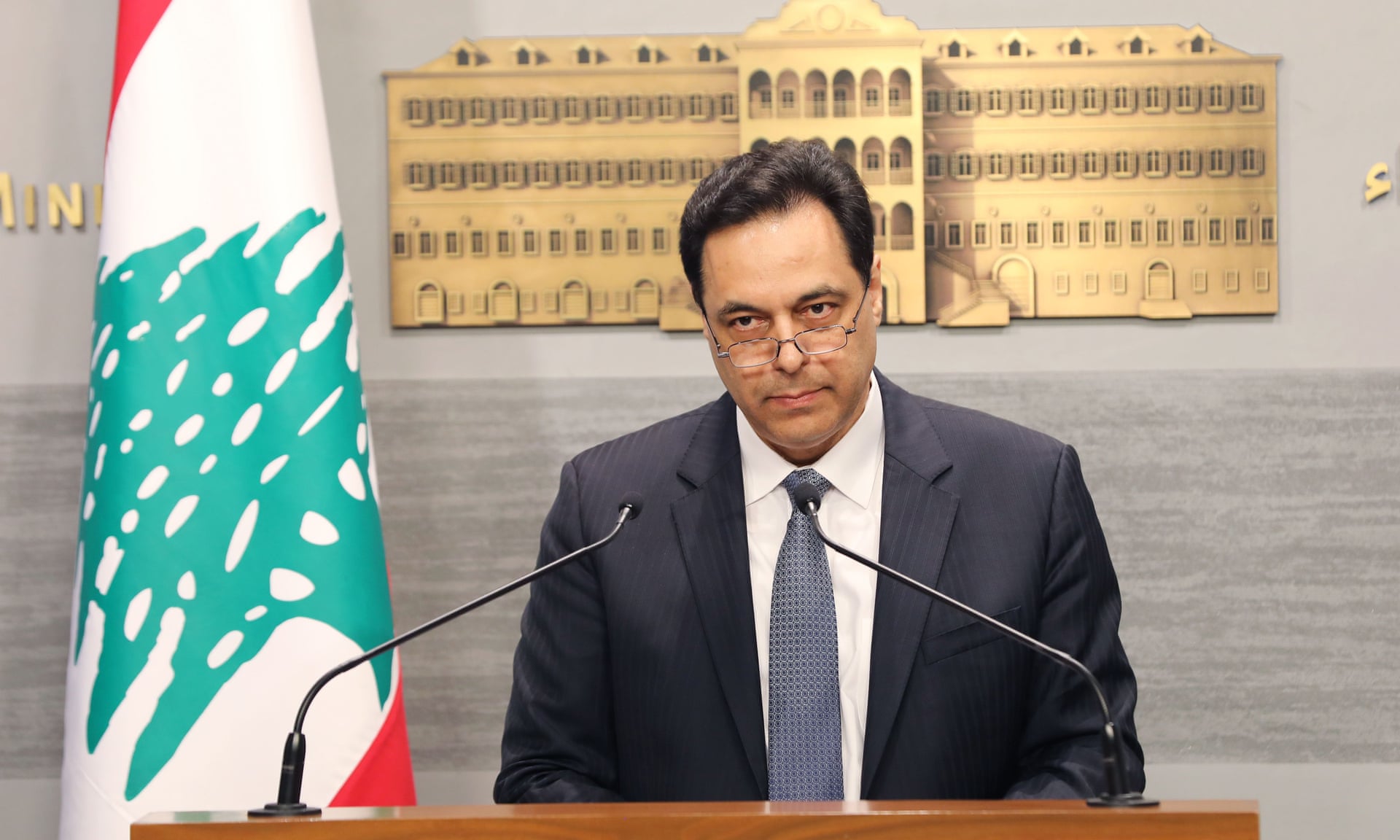
From 2009 to 2018 in municipal and parliamentary elections, there have been substantial gaps in Lebanon’s electoral laws. For instance, motives for vote-buying has risen by a failure of legal accuracy on what opines vote-buying and a new law that enhanced the upper limit on electoral expenditure.
In 2018 elections, state agencies illegally hired over 4,500 people and took advantage of scholarships, jobs, and medical aid support to allegedly buy their votes and of their families.
The Global Corruption Barometer identified that nearly one in two Lebanese is proposed a bribe in return for their vote, while one in four is pressurized with reaction if they refuse to vote in a certain way.
Anti-Corruption Laws
Despite these numbers, anti-corruption laws do exist in Lebanon. One law forbids public servants from “requesting or receiving, directly or through the intermediary of another person, by reason of the function they hold, gifts, gratifications or incentives of whatever nature.”
Meanwhile, a law on Fighting Money Laundering enables reporting tasks and the formation of the Special Investigation Commission, whose authorization includes inquiring expected money laundering violations and to lift bank confidentiality.
Over the years, the SIC’s powers were increased to fulfill international concerns regarding terrorism financing, auditing Lebanese and non-Lebanese tax uniformity. In 2018, the SIC received and investigated 489 cases, which resulted in lifting bank secrecy and funds controlling in 30 cases.
Tackling Corruption in Lebanon
Nevertheless, lifting bank secrecy completely is urgently required as a lack of transparency has piled up massive complications for the country’s economy. Combating corruption in Lebanon cannot be restricted to one organization, and the process will have to include all institutions, media, and people.
If Diab’s government is to be successful in rooting out corruption and fixing the economy, it will have to take uncompromising measures that will have implications for the parties who brought Diab to power.
The Lebanese people have a strong point. They want an independent judiciary that can combat corruption, a gradual taxation system, and the redistribution of wasteful spending toward projects that safeguard citizens.
#Lebanon: Widespread protests against corruption, lack of adequate services, and the deteriorating living conditions. Lebanon is facing the worst socio-economic #crisis in years. Impacting its #refugee communities. https://t.co/mLijnyhE3d
— NRC Middle East & North Africa (@NRC_MiddleEast) March 10, 2020
However, there is a high possibility that the ongoing crisis will deteriorate further. On Saturday, the country said it would default on its Eurobond debt for the first time. Diab’s government recently requested help from the International Monetary Fund to combat its economic disaster. But who will carry the cost? Will it be the banks, which are mainly controlled by politically associated businessmen, or will it be the ordinary people who have been unable to approach their accounts, witnessed their life savings vanish, and are going bankrupt?
For a country like Lebanon, where sectarianism is deep-rooted and depends on favoritism, wiping out corruption creates a more complex situation for the economic system. Corruption is generally seen as a disease, an indication of a system breakdown. The question is whether the government is willing to make the concessions that can lead to a welfare state and security for its people.
Disclaimer: The views and opinions expressed here are those of the author and do not necessarily reflect the editorial position of The Globe Post.

